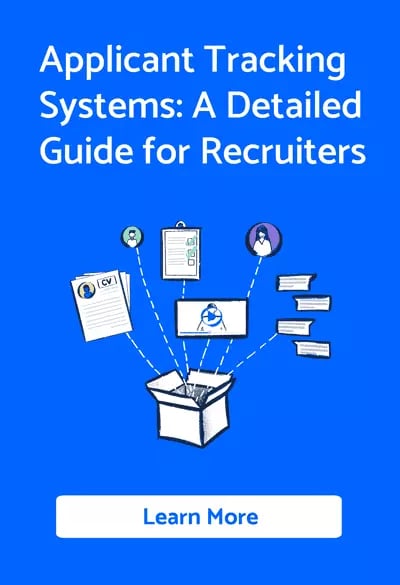Launching and scaling a startup often requires a significant influx of capital. While equity financing is a widely recognised method for raising funds, it comes at the cost of ceding partial ownership of your venture.
According to research by the British Business Bank, equity deals accounted for 6% of small and medium-sized enterprise (SME) finance in the UK in 2020.
Although equity financing has merits, many entrepreneurs are exploring alternative methods to secure funding without diluting their ownership stake.
In fact, 22% of SMEs in the UK used external financing in 2020, indicating that non-equity funding options are gaining traction.
This article explores various alternative routes to help you secure the financial support your startup needs without sacrificing ownership.
At GoHire, we were able to experience our initial stages of growth using funding from Capchase, a great platform for SaaS businesses to get the funding they need without giving up equity.
1. Bootstrapping
Bootstrapping funds your startup using personal savings, revenue, or other resources without relying on external investors.
According to a report by the Kauffman Foundation, approximately 80% of new startups are primarily self-funded.
This self-funding approach allows entrepreneurs to control their businesses fully while encouraging financial discipline and lean operations. Key strategies for successful bootstrapping include:
- Minimising expenses: Operate on a lean budget by cutting unnecessary costs and focusing on essential operations.
- Prioritising revenue generation: Develop a strong business model with a clear path to profitability.
- Seeking strategic partnerships: Collaborate with other businesses to share resources and minimise expenses.
2. Crowdfunding
Crowdfunding is raising small amounts of money from many people, typically via online platforms.
According to Fundly, over $34 billion has been raised globally through crowdfunding. There are several types of crowdfunding, including:
- Reward-based crowdfunding: Offer backers exclusive rewards or products in exchange for their support. Platforms such as Kickstarter and Indiegogo cater to this model. Successful campaigns, like the Pebble Time smartwatch, raised over $20 million on Kickstarter.
- Debt-based crowdfunding: Also known as peer-to-peer lending, this model involves borrowing money from multiple investors, promising to repay the loan with interest. Platforms like Funding Circle facilitate this type of crowdfunding. As of 2021, Funding Circle has facilitated over £10 billion in loans.
3. Grants and Competitions
Grants and competitions can provide startups with non-dilutive funding, often through cash prizes, resources, or mentorship.
According to Seedrs, over 200 UK organisations offer startup grants totalling more than £250 million annually.
To secure grant funding or win competitions, consider the following:
- Research: Look for government grants, industry-specific grants, and competitions relevant to your startup's sector or target market. For example, Innovate UK offers funding opportunities for innovative businesses.
- Application: Prepare a compelling application that showcases your startup's potential impact, innovative solution, and market opportunity.
- Networking: Attend industry events and conferences to learn about new grant opportunities and establish connections with key players in your sector.
4. Business Loans
Business loans can be a viable alternative to equity financing, providing startups with the capital they need without diluting ownership.
According to British Business Bank, 22% of small businesses in the UK used external financing in 2020. Options for business loans include:
- Traditional banks: Approach banks and financial institutions with a solid business plan and financial projections to secure a business loan.
- Online lenders: Explore online lending platforms like OnDeck and Kabbage that offer faster approval times and more flexible lending criteria.
- Government-backed loans: Investigate government-backed loan programs, such as the UK's Start Up Loans scheme, which offers favourable terms and support to startups. Since its inception, Start Up Loans has provided over £500 million in loans to UK startups.
5. Strategic Partnerships and Corporate Sponsorships
Collaborating with established companies can provide startups with valuable resources, such as funding, mentorship, or access to a larger customer base. To secure strategic partnerships and corporate sponsorships, consider the following steps:
- Identify potential partners: Look for companies with complementary offerings or a shared target audience.
- Develop a value proposition: Clearly articulate the benefits your startup can provide to potential partners or sponsors.
- Pitch your partnership: Approach potential partners with a well-crafted proposal outlining the collaboration's mutual benefits.
6. Revenue-Based Financing
Revenue-based financing (RBF) is a funding option that provides startups with capital in exchange for a percentage of future revenues.
Unlike traditional loans, RBF payments fluctuate based on your company's revenue performance.
Companies like Lighter Capital and SaaS Capital specialise in revenue-based financing for software and technology companies.
7. Vendor Financing
Vendor financing, or trade credit, involves negotiating favourable payment terms with suppliers to delay payments, effectively providing short-term funding for your startup.
This financing option allows you to free up cash flow and invest in other areas of your business. Key strategies for successful vendor financing include:
- Building strong relationships: Cultivate good rapport with your suppliers and demonstrate your commitment to timely payments.
- Negotiating terms: Request extended payment terms, such as net 60 or net 90, to improve cash flow.
- Leveraging credit: Offer to pay using a business credit card to delay payments further and potentially earn rewards.
8. Invoice Factoring
Invoice factoring is a financial service that allows startups to sell outstanding invoices to a third-party company, known as a factor, at a discount.
This can help improve cash flow by providing immediate access to funds tied up in unpaid invoices. Companies like MarketInvoice and BlueVine offer invoice factoring services for startups.
To round up how to get startup funding without giving up equity
Securing startup funding without giving up equity is possible through various alternative routes, such as bootstrapping, crowdfunding, grants and competitions, business loans, strategic partnerships, revenue-based financing, vendor financing, and invoice factoring.
By exploring these options and leveraging the available resources, entrepreneurs can maintain control over their startups while accessing the capital necessary for growth and success.
Frequently Asked Questions
What does it mean to get startup funding without giving up equity?
Getting startup funding without giving up equity refers to raising capital for your startup without selling a portion of your company's ownership or shares. It allows you to retain full control and ownership of your business.





